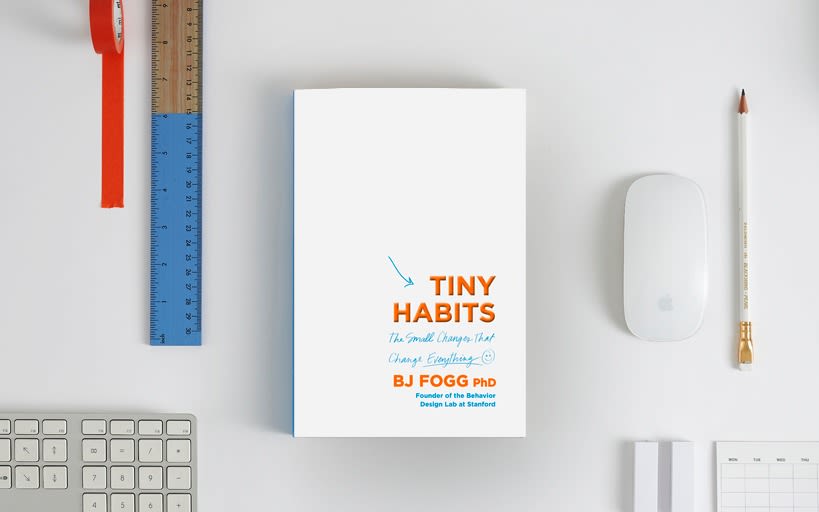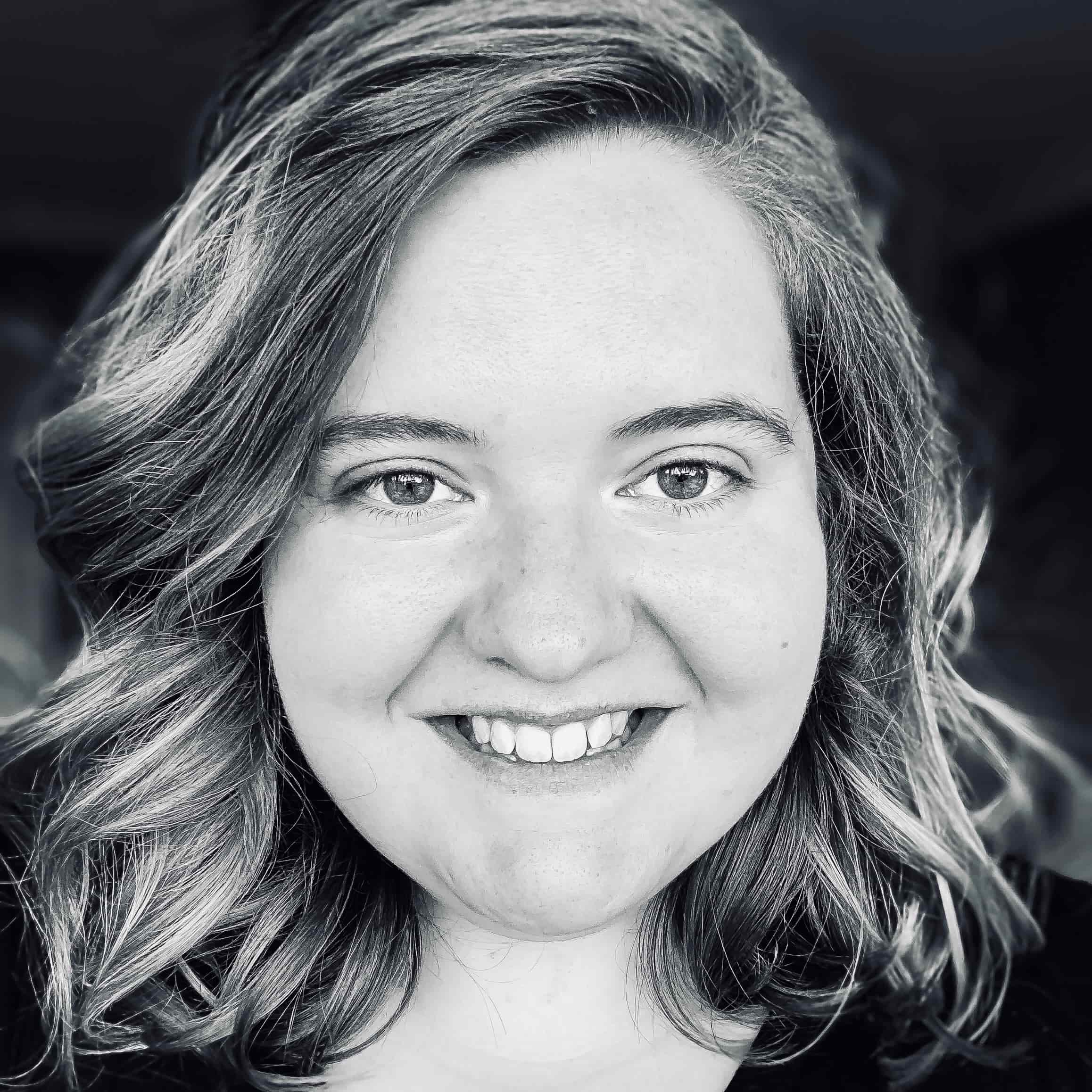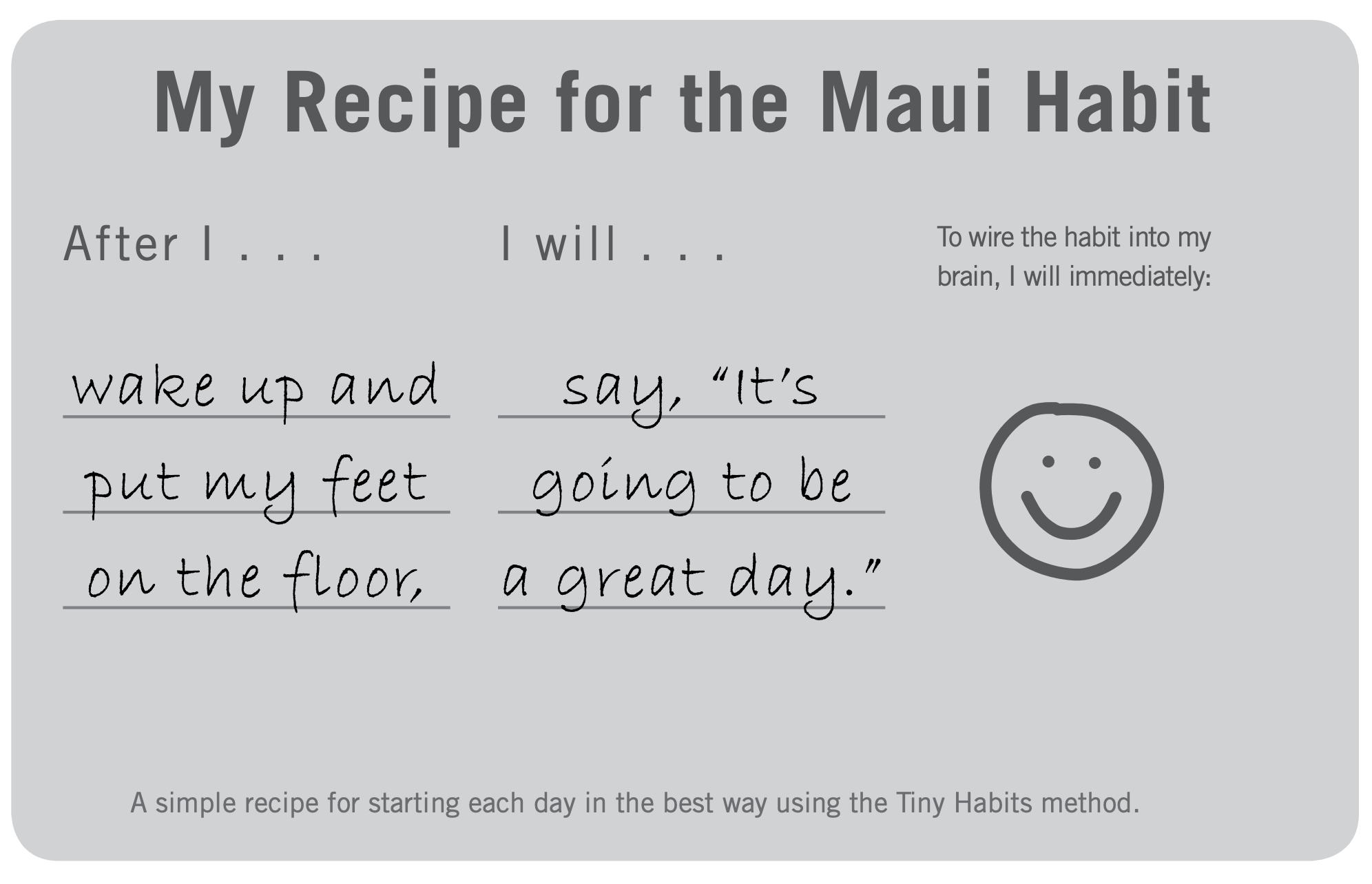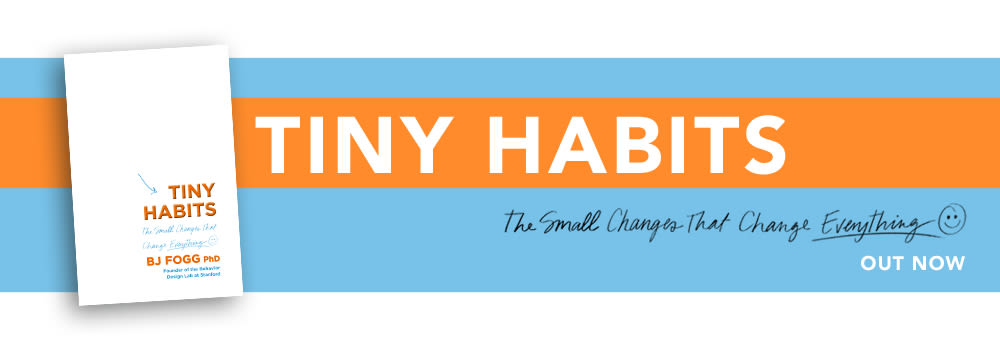Tiny Habits: How to make resolutions that will last
A Stanford University behavioural scientist, Dr Fogg has served on Virgin Pulse’s Science Advisory Board. He worked with the employee wellbeing company to advise on how people can change their lives by changing their behaviour.
In his new book, Tiny Habits, which is published by Virgin Books, Dr Fogg talks about his framework for creating lasting change through tiny habits. In this extract, he looks at what that looks like in practice…
Tiny is fast
Time. There’s never enough of it, and we always want more of it. We eat drippy hamburgers in our cars and take conference calls while we’re at the beach with our kids because we feel so pressed for time. This pressure leads to a scarcity mindset – we believe that there will never be enough time, so we say no to changes because we feel like we don’t have the hours to cultivate new positive habits. Thirty minutes of exercise a day? Cooking a healthy dinner every night? Writing daily in a gratitude journal? Forget it. Who. Has. The. Time.
You could scold yourself down the path of change. Or you could make your life a lot easier.
You could start tiny.
With the Tiny Habits method, you focus on small actions that you can do in less than thirty seconds. You will quickly wire in new habits, and then they will grow naturally. Starting tiny means you can begin creating a big change without worrying about the time involved. With Tiny Habits, I advise people to start with three very small behaviors or even just one. The more stressed you are and the less time you have, the more appropriate this method is for you. No matter how much you want to cultivate a healthy habit, you won’t be able to do it reliably if you start big. When you go big, the new habit probably won’t stick. In many people’s lives, tiny isn’t just the best option, it might be the only option.
Tiny can start now
Tiny allows you to get real with yourself and your life. Tiny allows you to start right now. It meets you where you are – whether your life is in a desperate spiral or you are stressed out but otherwise fortunate. We all have our own life circumstances to contend with, ways of thinking that aren’t ideal, and quirks of psychology that hold us back. We could feel bummed and ashamed about it, or we could use the Tiny Habits method to hack the system.
I won’t prescribe exact habits in this book. I’m sharing a method for wiring in any habit you want. You pick the habits. But right here, right now, I’m making an exception. I invite you to start practicing a new habit first thing each and every morning. It’s simple. And it takes about three seconds. I call it the Maui Habit.
After you put your feet on the floor in the morning, immediately say this phrase, “It’s going to be a great day.” As you say these seven words, try to feel optimistic and positive.
The recipe in Tiny Habits format looks like this.
Over the years, I’ve helped thousands of people bring the Maui Habit into their lives, and the results have been excellent. It’s certainly been effective in my own life. With the Maui Habit, you can start immediately – and almost effortlessly – toward a better future.
Here are a few variations on this habit to consider.
Some people say a slightly different phrase each morning such as “Today is going to be awesome.” If that phrase or some variation works better for you, adjust as needed.
A few people have changed the timing. Some say this phrase when they look in the mirror in the morning. I’m quite sure that wouldn’t work for me. (I avoid looking in the mirror first thing. Yikes!) But if this spot in your routine works best for you, then go for it.
I suggest you start with the classic version as written on the recipe card, then modify it if needed.
When I do the Maui Habit each morning, I pause for two or three seconds after I say the phrase. I’m still waking up at that point, and I want the idea to sink in.
If you do the Maui Habit and feel that it won’t be a great day, I advise you to still say this phrase. I say it even on mornings when I feel exhausted or overwhelmed or anxious about the day ahead. In that moment, sitting on the edge of my bed, I try to feel optimistic. But if this feels phony, then I adjust the phrase and my intonation as I say, “It’s going to be a great day – somehow.”
I find this oddly helpful even on my worst days. When I’m worried about the day ahead, this statement – even when I say it with a question in my voice – seems to open the door just a crack to actually having a good day. And that’s exactly what happens most days.
Think of the Maui Habit as a simple practice you do each morning in about three seconds. This will show you how easy it is to get started, and it will help you learn the single most important skill in behavior change – feeling successful.
Tiny Habits is out now on Virgin Books



